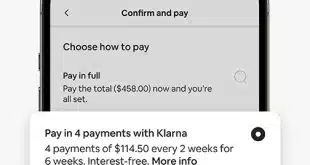NACHA's proposed new product for Internet transactions, which it is proposing to test later this year (Digital Transactions News, March 15), could unleash powerful competitive forces among banks if it becomes a commercial payment application, an expert observer notes. Banks that choose to allow their customers to pay online merchants and billers through the new automated clearing house application will jockey among themselves for transactions, while those that choose not to participate could lose market share to those that do, says Steve Mott, an electronic payments consultant in Stamford, Conn. “Now the blocking and tackling begins,” he says. The potential competitive environment bears some resemblance to the early days of the credit card business, when banks raced to sign up cardholders and win market share. Indeed, Mott says the new payment type, which NACHA internally refers to as “credit push,” could prove to be a boon to smaller institutions that have been shouldered out of the credit card business by the big banks. He estimates the top 10 bank card issuers control only 40% of the nation's demand-deposit accounts. “You have the possibility of market lift from all those [consumers] that could become online bankers,” he says. In NACHA's proposed new application for online payments, consumers would use their banks' online-banking platforms to issue instructions to pay Web merchants. Payments would be electronically “pushed” from consumers' checking accounts to merchants' accounts via the ACH. The online banking programs would be responsible for authenticating consumers, obtaining authorization, and guaranteeing funds to merchants. On the acquiring side of the business, Mott figures banks and processors could gain a big early advantage by focusing on the right markets. “If they pick a couple of good vertical segments that lots of folks use, like online travel and computers, all they need is two to three merchants in each segment and they've got a lot of market share,” he notes. While NACHA has said the pilot for the new payment type will include interchange-like pricing, with merchants' banks paying fees to consumers' banks, Mott says pricing is likely to vary widely depending on negotiation between merchants and processors. “They'll just wheel and deal on different packages,” he says. “You may see a balkanization of pricing based on verticals.” Mott adds that a useful outcome of the pilot would be to establish workable price points. “Let's see who makes money and who doesn't,” he says. A possible starting point, he says, could be 1% for large merchants, ranging up to 1.5% for small sellers. This pricing would undercut typical discount fees for credit cards?now the dominant currency on the Web?by as much as 200 basis points. NACHA, which has only begun recruiting banks and merchants for the pilot, has not said officially when it will start. Mott estimates the association will have recruited the five banks and 10 merchants and billers it is looking for by summer. The most difficult challenge, Mott says, will be getting participating merchants to work the project into their internal IT schedules so that the necessary software to redirect customers to online bank systems can be installed and tested. “If you're the [receiving depository financial institution] for that merchant, maybe you'll sweeten the pot for that merchant to put the project higher up in the queue,” he says.
Check Also
A Global Survey Uncovers a Strong Following for Stablecoins
Research released early Tuesday argues stablecoins have made their move out of niche applications and …






